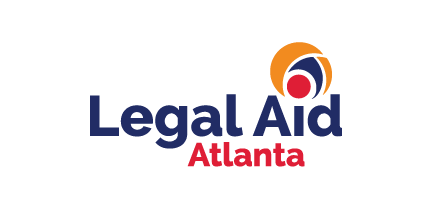Olmstead’s 20th Anniversary: Continued Advocacy Will Help People with Disabilities Thrive
By: Jim Sandman, President, Legal Services Corporation
This month marks the 20th anniversary of Olmstead v. L.C. and E.W. , the landmark U.S. Supreme Court decision that changed the landscape of disability law in this country. The case was brought by Atlanta Legal Aid — a Legal Services Corporation grantee — and involved two women who had been cycling in and out of Georgia’s state psychiatric hospitals due to an inadequate state-funded community service system. In the twenty years since the decision, states, including Georgia, have made great strides in transforming their community systems, making it possible for people with disabilities to live, work, and play in the community. However, in order to ensure that all people with disabilities can thrive, we must continue to advocate on behalf of those in need and require that states uphold the law.
In 1999, Legal Aid lawyer Susan C. Jamieson represented clients Lois Curtis and Elaine Wilson, arguing that under the “integration mandate” of Title II of the Americans with Disabilities Act, their unnecessary segregation in institutions constituted disability discrimination. The Court agreed. In the opinion, Justice Ginsburg wrote that States are required to provide community-based services for people with disabilities when treating professionals say the placement is appropriate, the person with a disability does not oppose, and the placement can be reasonably accommodated.
The Olmstead decision has benefitted people like Mary, a woman with a developmental disability and mental illness, who had lived for decades in Georgia institutions, all the while longing to go back home to the small town in northwest Georgia where she had spent her early years. Mary had a Legal Aid lawyer who advocated for her to receive a community-based Medicaid waiver, and she is now living in a group home in her hometown, proudly working and earning her own money, just as she had always dreamed.
Olmstead has also transformed the life of Tanner who has autism and does not use words to communicate. He had been living at home with his mother, who has multiple sclerosis and uses a wheelchair, but his behaviors became so challenging that he would spend days in the emergency room. Tanner’s Legal Aid advocates represented both Tanner and his mother so they could get the community-based supports they desperately needed.
While Olmstead has been a beacon of hope for many people with disabilities, unfortunately many have fallen outside of its light. Too many Georgia citizens do not know they have a civil right to community services, and only a lucky few have lawyers to assert that right on their behalf.
People with mental illness who are cycling in and out of jail on an endless revolving loop could finally be diverted from incarceration if they had access to robust community mental health services and supported housing. People with physical disabilities confined in nursing facilities could be supported in the community with what is often a cheaper community-based Medicaid alternative, but they are not given the choice prior to admission. People with intellectual disabilities who are working in “sheltered workshops” at sub-minimum wage could instead be working in jobs that are fully integrated in the community, if they had access to supported employment services.
Since 1999, the lawyers and paralegals in the Disability Integration Project of Atlanta Legal Aid have made it their mission to ensure that community integration is a reality for all in the home state of Olmstead. Through their representation of both children and adults with disabilities, Legal Aid shines a spotlight on individuals who are simply seeking the supports they need to live full and meaningful lives in the community. Other advocates across the country are similarly focused on Olmstead, working tirelessly not only to free people from unnecessary institutionalization but also to promote more full inclusion of people with disabilities in areas such as employment and education.
While the progress in the last twenty years has been remarkable — with thousands of people with disabilities across the country finally becoming part of their communities with the help of integrated state-funded supports – advocates still have more work to do and must stand alongside people with disabilities and fight for this fundamental right. Olmstead is the key to the community, but the door is not yet open to all. By working together, we can expand community-based opportunities for people with disabilities, help them create and maintain economic independence, and stay close to the family and friends they love.
